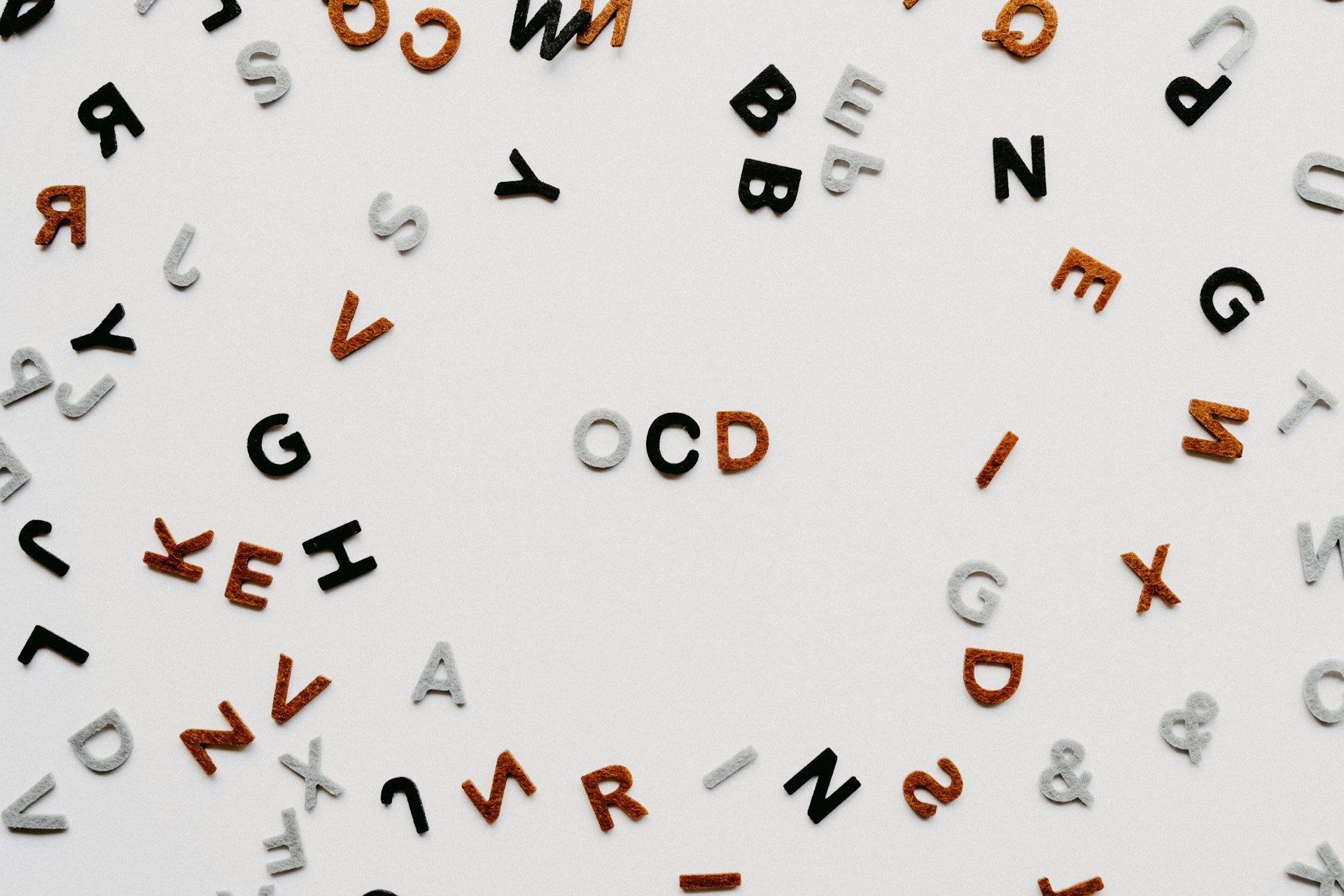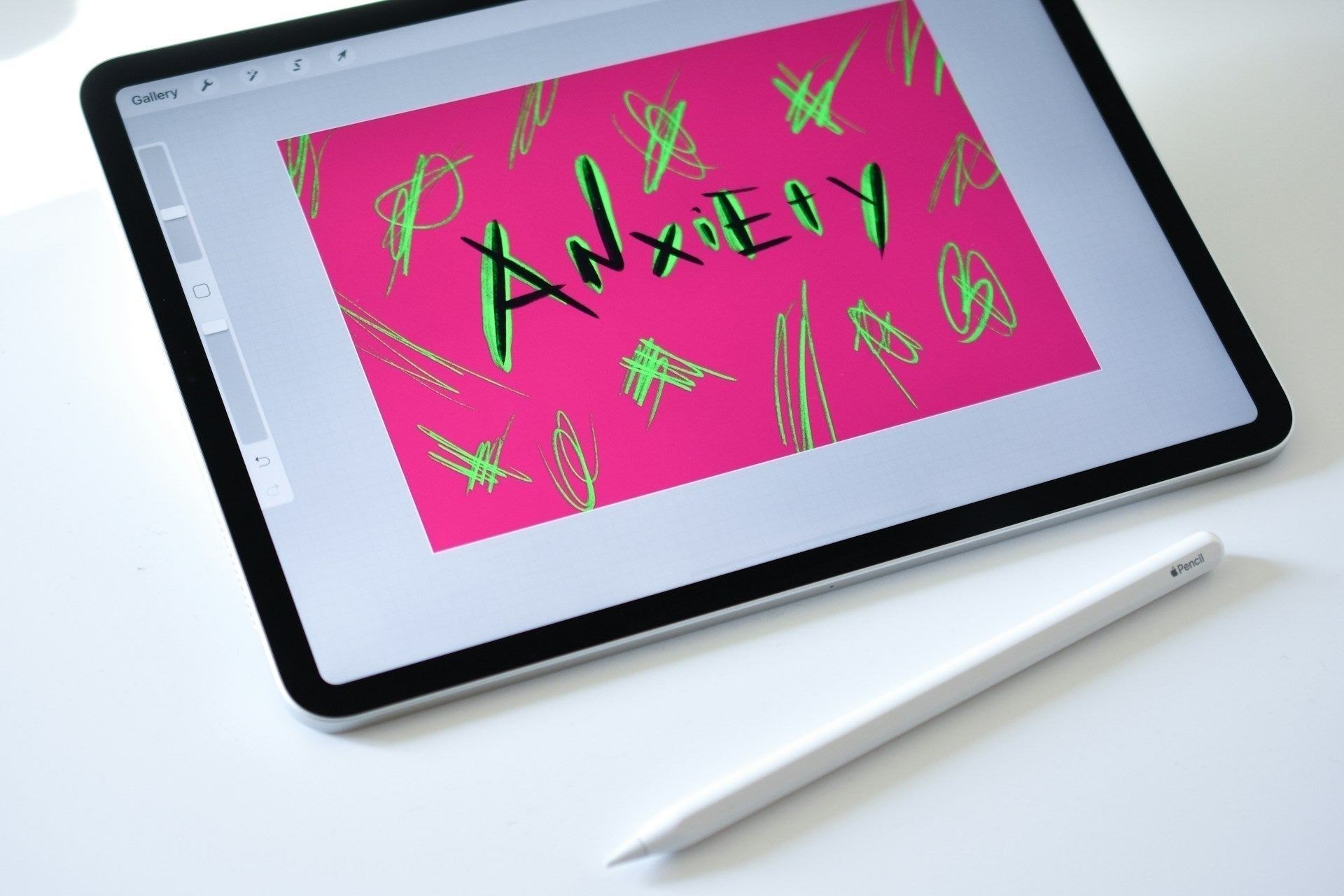Definition of OCD
Obsessive-Compulsive Disorder (OCD) is a common anxiety disorder characterized by recurrent, intrusive thoughts (obsessions) and repetitive behaviors (compulsions) that significantly impact a person's daily life and mental health.
Key Features
-
Obsessive Thoughts
Repeated, distressing thoughts, images, or urges that the individual finds difficult to control, even though they recognize these thoughts as excessive or irrational. Examples include fear of contamination, worry about certain events happening, or a compulsive need for specific numbers. -
Compulsive Behaviors
Actions or mental rituals performed repeatedly to alleviate the anxiety caused by obsessive thoughts. These behaviors are often excessive and repetitive, sometimes lacking any real purpose. Examples include frequent hand washing, checking if doors are locked, arranging items in a specific order, or repeating certain words mentally.
Types
-
Contamination
Excessive concern with cleanliness and hygiene. Individuals may repeatedly wash their hands, bathe, or clean objects to avoid germs or viruses. -
Checking
Repeatedly checking things like doors, windows, and appliances to ensure safety. This includes multiple confirmations that doors are locked, stoves are turned off, or appliances are unplugged. -
Orderliness
An extreme need for symmetry and order. Individuals may spend significant time arranging items in a specific order or ensuring things are perfectly aligned. -
Repetition
Performing certain actions or rituals repeatedly. This might involve counting, repeating an action a set number of times, or repeating certain phrases to reduce anxiety. -
Thinking
Repeatedly thinking about certain issues or scenarios. Individuals might get stuck in endless thoughts about specific problems, making it hard to break free and think clearly.
Impact of OCD
Psychological Effects
-
Chronic Anxiety and Stress
OCD patients are often under constant high pressure, unable to escape the distress caused by obsessive thoughts and compulsive behaviors, which affects their emotional stability. -
Low Self-Esteem and Self-Doubt
Repeated compulsive behaviors can lead to feelings of shame and guilt, making individuals feel unable to control their actions, resulting in lowered self-esteem and self-doubt. -
Emotional Fluctuations
Frequent anxiety and stress can cause severe emotional swings, with individuals experiencing anger, frustration, and despair. -
Social Avoidance
To avoid others noticing their compulsive behaviors or thoughts, individuals might steer clear of social activities, exacerbating feelings of loneliness.
Daily Life
-
Decreased Work and Study Efficiency
Obsessive thoughts and behaviors consume significant time and energy, making it hard for individuals to concentrate, thus reducing work and study efficiency, affecting career development and academic performance. -
Social Barriers
Shame from compulsive behaviors and worries about others' reactions may lead individuals to reduce interactions with friends, family, and colleagues, impacting social relationships and quality of life. -
Family Life
OCD symptoms may strain family relationships. Family members might struggle to understand the behaviors, leading to conflicts and distancing. -
Limited Daily Activities
Some compulsive behaviors, like repeated cleaning or checking, take up a lot of time, making it difficult to complete everyday tasks such as shopping, cooking, or leisure activities.
Physical Health
-
Physical Damage from Compulsive Behaviors
Repeated hand washing can cause dry, cracked skin and infections. Frequent checking can lead to muscle tension and fatigue, and compulsive dietary control may cause malnutrition or digestive issues. -
Health Issues from Prolonged Stress
Ongoing psychological stress can negatively impact physical health, potentially triggering or worsening cardiovascular diseases, hypertension, ulcers, and more. -
Sleep Disorders
Obsessive thoughts and behaviors might lead to difficulty falling asleep or frequent awakenings, affecting sleep quality, attention during the day, and emotional stability. -
Weakened Immune System
Long-term psychological stress and anxiety can weaken the immune system, making individuals more susceptible to colds and other infections.
Treatments for OCD
Medication
-
Antidepressants
Particularly selective serotonin reuptake inhibitors (SSRIs) like fluoxetine (Prozac) and sertraline (Zoloft), which can help regulate brain chemicals, reducing OCD symptoms and anxiety. -
Anti-Anxiety Medications
Such as benzodiazepines, which can quickly relieve anxiety but are typically used short-term to prevent dependence.
Psychotherapy
-
Cognitive Behavioral Therapy (CBT)
Including exposure and response prevention (ERP) techniques, which involve gradual exposure to anxiety-provoking situations while preventing compulsive behaviors, helping patients reduce dependence on these behaviors. -
Psychotherapy
Exploring the roots of obsessive thoughts and behaviors. Through communication with a therapist, individuals can understand and resolve underlying emotional conflicts and psychological trauma.
Self-Management and Support
-
Regular Habits
Healthy eating, sufficient sleep, and moderate exercise help maintain physical and mental balance, improving overall health. -
Support Groups
Joining OCD support groups to share experiences and strategies, gain emotional support and encouragement, and help individuals feel less alone. -
Relaxation Techniques
Such as meditation, deep breathing exercises, and yoga can effectively reduce anxiety and stress, helping individuals maintain inner peace.
Family and Social Support
-
Family Education and Involvement
Helping family members understand OCD and its treatments, encouraging them to participate in supporting and caring for the individual, creating a supportive family environment. -
Social Resources
Seeking professional mental health services and support, including counseling, crisis intervention, and community resources, ensuring comprehensive assistance and support for the individual.
Complementary Crystal Healing
-
Principles of Crystal Healing
Crystals possess specific energy frequencies that can help balance and harmonize the body's energy field. Holding or wearing crystals can absorb their positive energy, alleviating anxiety and stress, with the natural beauty and texture of crystals providing a calming and soothing effect. -
Crystals for Healing OCD
- Amethyst:Elevates spiritual levels, reduces anxiety and depression, and brings inner peace and tranquility.
- Obsidian:Provides strong protection and purification, helping to clear negative energy and enhance self-control.
- Rose Quartz:Emits gentle energy, promoting self-love and inner harmony, and reducing emotional fluctuations.
- Lapis Lazuli:Enhances self-awareness and insight, reducing the distress of obsessive thoughts.
- Turquoise:Balances emotions and boosts the immune system, reducing physical tension.
-
Usage
- Meditation:Hold or place crystals around the body during meditation to absorb their energy and enhance the meditation experience.
- Wearing:Make jewelry from crystals to wear, allowing the individual to receive their energy nourishment at all times.
- Placement:Place crystals in work or living environments to purify space energy and create a peaceful atmosphere.
Conclusion
OCD is a complex mental disorder that profoundly impacts psychological well-being, daily life, and physical health. However, through a combination of treatments, including medication, psychotherapy, self-management, and support systems, OCD can be effectively controlled and improved.
Additionally, as a complementary therapy, crystal healing can also play a positive role in alleviating OCD symptoms through its unique energy properties and usage methods. The key lies in early identification and seeking professional help, combining scientific and natural healing methods so that individuals can gradually regain balance and find joy and fulfillment in life. In the future, we hope more people will understand and support those with OCD, helping them on their path to recovery.




